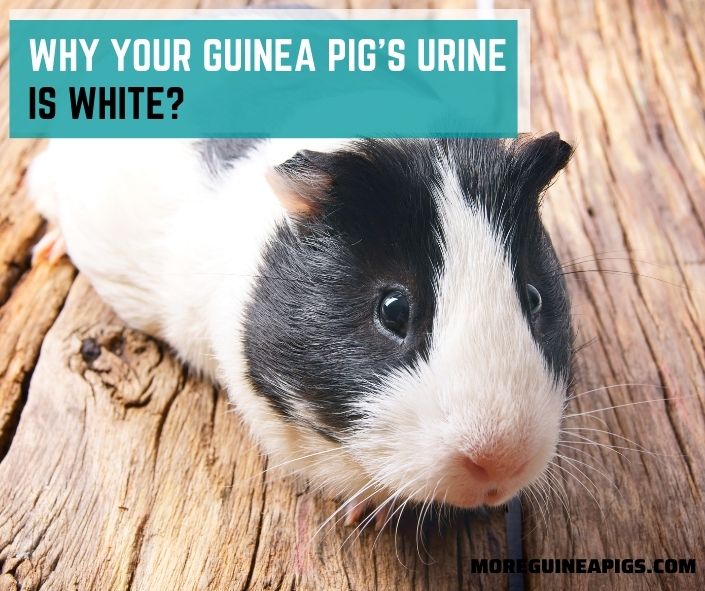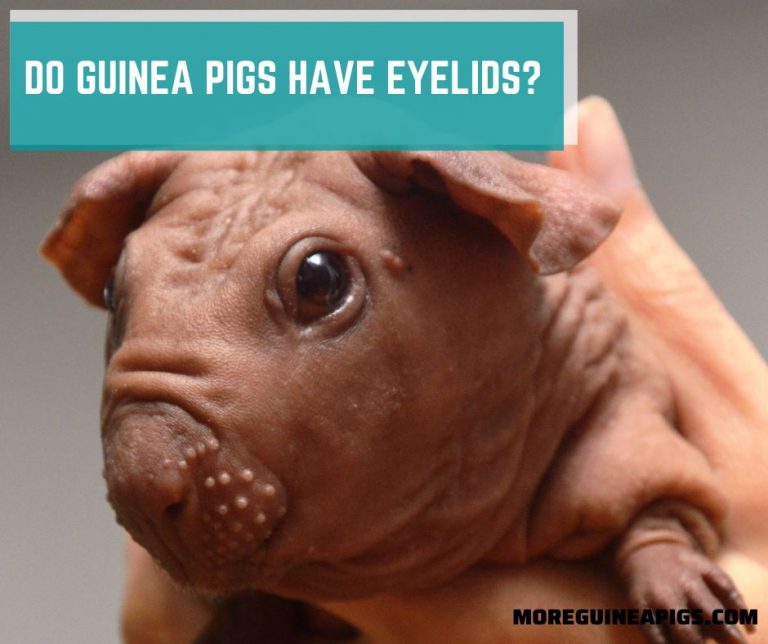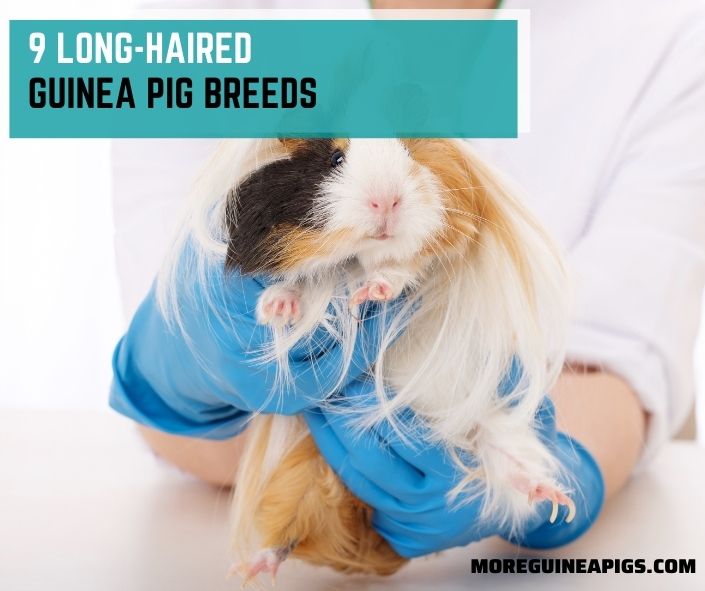What to Do If You Found Maggots in Guinea Pig Cage
Although guinea pigs are quite hardy, there are several diseases and pests that can affect them. One of the pests that can potentially cause a fatal threat to your guinea pig is the flies.
You may be wondering why maggots are in your guinea pig’s cage when infested by flies.
Flies can lay eggs in your guinea pig’s cage or on your guinea pig which will then hatch into maggots. This usually occurs if you keep your guinea pig in a dirty cage or your guinea pig is old and cannot take care of itself.
In this article, we will help highlight everything you need to know about maggots in guinea pig cage, from what causes this to the ways that you can prevent it from happening.
Why Are There Maggots In Guinea Pig Cage?
Maggots usually occur if you house your guinea pig in a dirty cage. This will attract flies that will lay eggs either in your guinea pig’s housing or on your guinea pig, and the eggs will then hatch into maggots.
Infestation by maggots can be fatal to your guinea pig as the maggots eat and bury themselves deeper into your pet while releasing deadly toxins. Once you find any maggots in your guinea pig cage, you should consult with your vet immediately.
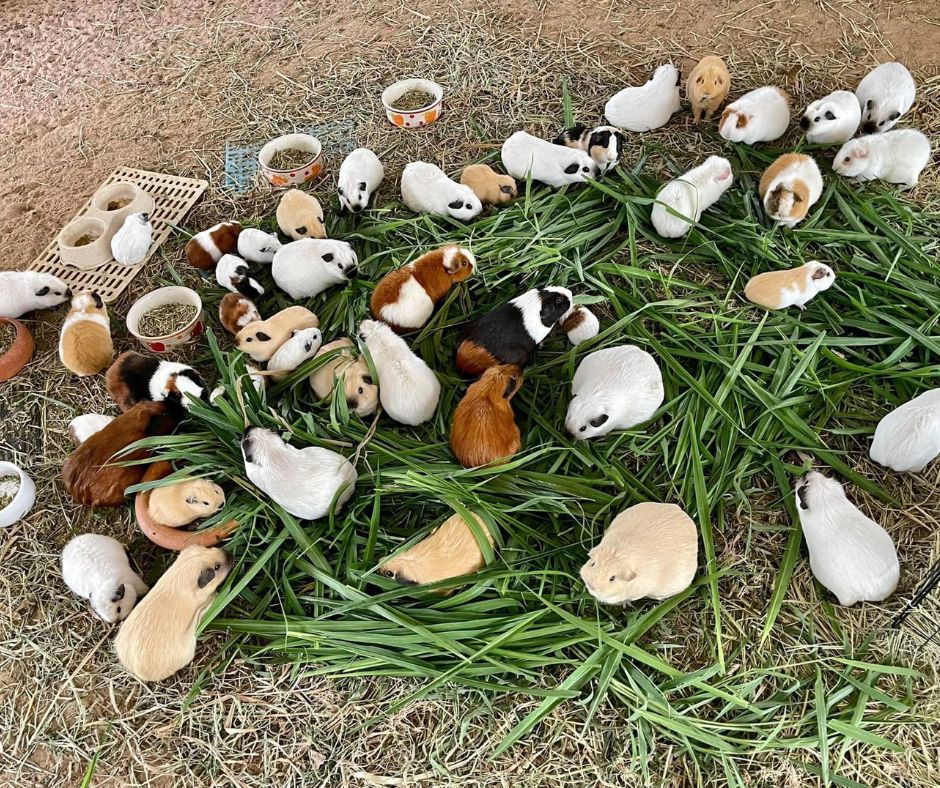
Flies Laid Eggs On Damp Areas or Poop in The Shavings
Your guinea pig’s enclosure can become infested with maggots when flies lay their eggs in it. The eggs will then hatch in hours, and you should be extremely careful when this happens.
The main reason why this happened is if your guinea pig’s enclosure is dirty.
Flies usually infest guinea pig’s enclosures filled with feces and urine. The flies will be attracted to the tank by the smell of the feces and urine and then lay their eggs in the cage.
This will then lead to horrific flystrike as the maggot starts eating into your guinea pigs’ body and also releases deadly toxins.
Maggot infestation in guinea pigs is usually common in the hot summer months, and you can prevent this by cleaning your guinea pig’s cage regularly.
Flies Laid Egg On The Piggie Create Flystrike Infection
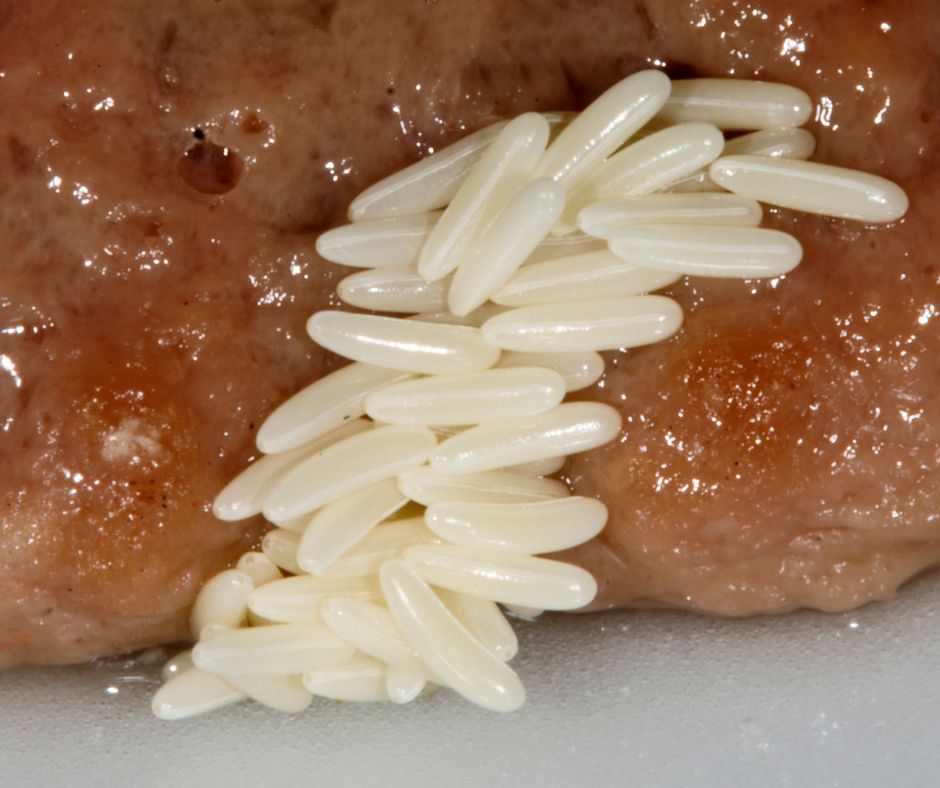
Flies can also lay eggs on your guinea pigs, leading to flystrike infection. The eggs will then hatch in hours into maggots and will feed on your pet’s flesh.
Flystrike infection is not only a painful experience for your guinea pigs; it can also be fatal if you do not detect it at the early stages.
Your guinea pigs can develop flystrike infection if it has any of the following traits:
- Dental issues
- Your guinea pig is overweight
- There are loose folds of skin around your guinea pigs abdomen or bottom
- It has long hair
- There are open wounds on your guinea pig.
- diarrhoea or a failure to eat c-poops
Once your guinea pigs have any of these traits, you should check them frequently for any signs that maggots are hatching on their skin. If you find any maggots on their body, it is best to call exotic vets immediately for treatment.
How To Deal With Maggots in Your Guinea Pig’s Cage
Maggots can cause fatal damage to your guinea pigs if you do not deal with them immediately. If left alone, maggots can feed on your guinea pigs and can even lead to death. Some of the ways to deal with maggots in your guinea pig’s cage are stated below.
Scan Your Guinea Pig To Check Signs of Flystrike
It is quite hard to detect when your guinea pigs are suffering from flystrike. Furthermore, their symptoms are usually not noticeable until it is late.
A great way to deal with flystrike is to regularly check your guinea pigs for any flystrike signs once you see flies around your guinea pig cage.
It is common for flies to lay their eggs around guinea pig’s anus, and you should check it regularly for maggots. You can also find maggots on other parts of your guinea pig. There are also times when you can mistake maggots for worms.
You should also scan your guinea pig for wounds, as this may indicate that maggots are eating away your guinea pig’s flesh.
Remove any Visible Maggots
Once you notice any maggots on your pet, you can use tweezers to remove the maggot. Another way to remove visible maggots is by putting your pet in water.
However, it is advisable not to remove maggots from your guinea pigs without having prior experience, as this can cause toxic shock to your pet.
It is best to remove visible maggots from your guinea pig’s cage to help ensure the maggot does not infest your pig. You can do this by regularly cleaning your guinea pig’s cage.
Thoroughly Cleaned Guinea Pigs and Their Cages
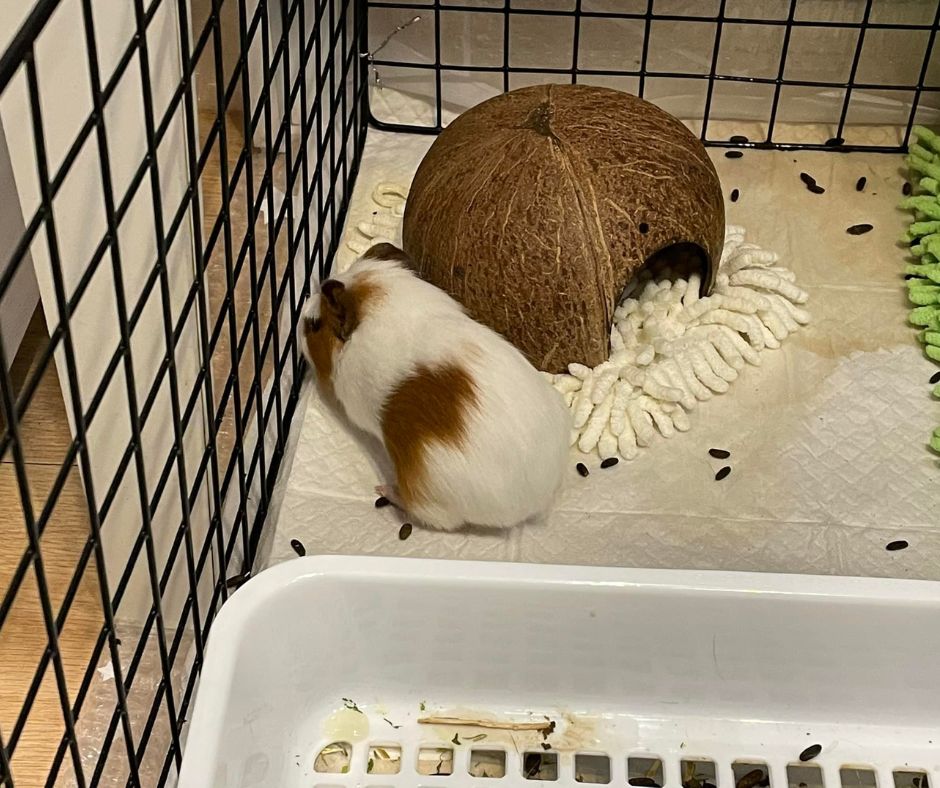
You can deal with flystrike by cleaning your guinea pigs regularly. By regularly grooming your cavy, flies will not be attracted to them, making it easier to detect any potential signs of illness.
You can groom your guinea pigs by clipping its nail and teeth, brushing their fur, and so on.
While grooming your pig, you can also use that to detect any sign of illness in your pig. Another reason for cleaning your pig regularly is that some cavy may have problems with self-cleaning.
This is common in old guinea pigs or those suffering from chronic conditions.
Apart from cleaning your guinea pigs, you also need to clean their cages weekly. Furthermore, you should remove soiled bedding and uneaten foods from their cage daily as this can attract flies.
Call The Veterinarian Immediately
It is recommended that you call your exotic vet immediately if you notice that your guinea pig may have a flystrike.
This is because it is best to detect flystrike early and start treatment immediately to help save your cavy’s life. Most reputable vets will provide an emergency appointment for you.
How Do Vets Treat If Your Piggies Have Flystrike?
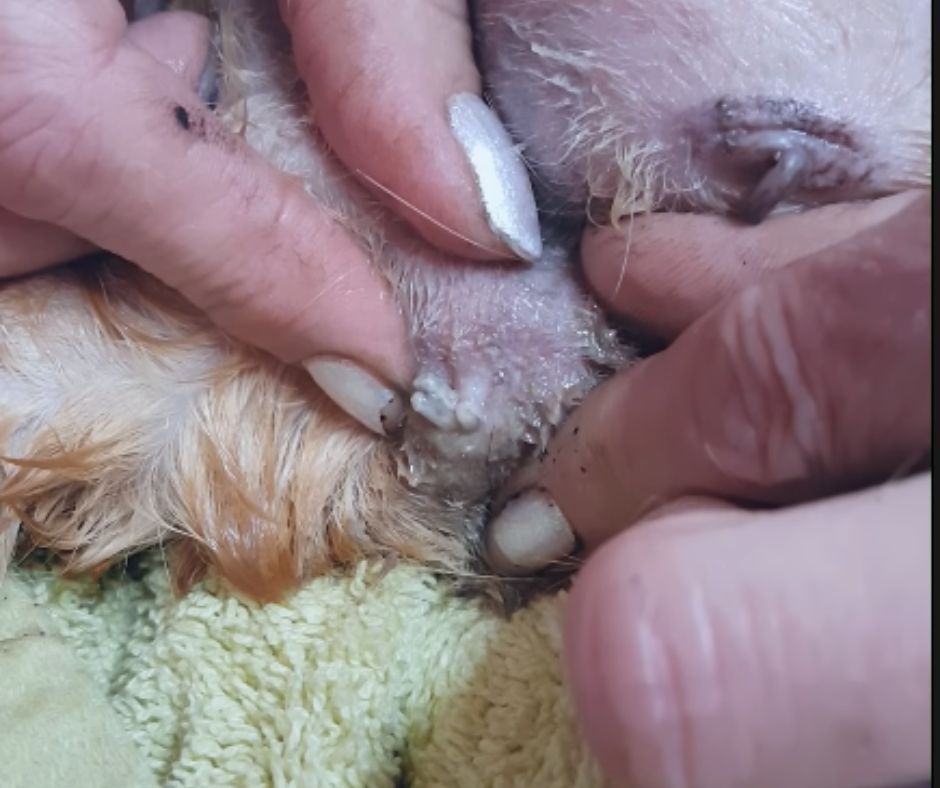
Your vet will help to trim and clean the affected part of your guinea pig. The vet will then remove any maggots on your guinea pig’s skin. The vet will then perform surgery to clean and debride wounds but not close them at this point, as maggots can be inside and infections are often present.
Furthermore, the vet will prescribe medications (pain relief, antibiotics, anti-inflammatory, etc.) to help treat the flystrike. The vet can also give anti-parasitic medication for killing all the eggs and maggots on your guinea pigs.
There are some cases where the vet prescribes medications that you can use to treat your cavy over some weeks. You have to apply the medications as prescribed several times a day to help ensure the wounds are healed.
However, there are severe flystrike cases where the maggots have burrowed too deeply into your cavy’s body, and your vet may recommend euthanasia.
How to Prevent Maggots in Your Guinea Pig’s cage
It is important to prevent maggot infestation in your guinea pig’s cage as some maggots will start feeding within 24 hours.
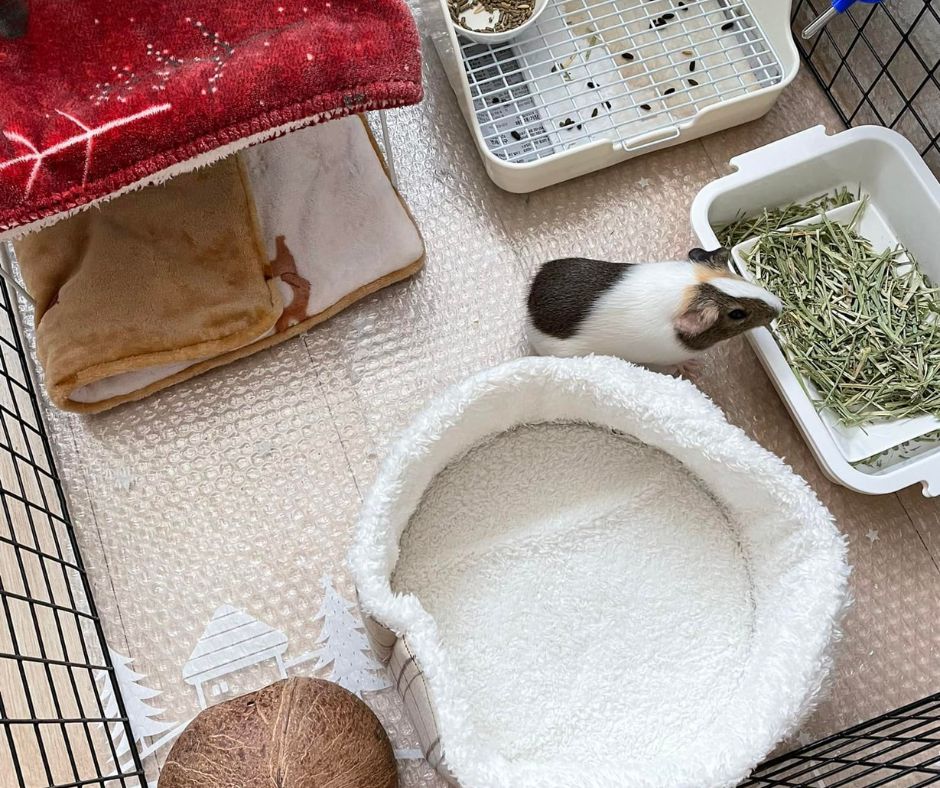
A great way to prevent maggot infestation is by maintaining good hygiene when dealing with your pet. Some of the ways that you can prevent maggots in your guinea pig’s cage are stated below.
Keeping Cage As Clean As Possible
Common knowledge is that having a clean cage can help ensure you don’t attract flies to your guinea pig’s cage. This means you should clean your guinea pig’s cage regularly.
You need to ensure that their cage does not smell, and you should use pet-friendly disinfectants for cleaning their cage.
Furthermore, ensure that you remove soiled beddings and leftover foods every day.
Keeping Clean Guinea Pig
Another thing is to ensure that your guinea pig is clean. You should groom your guinea pig regularly and trim their fur to help prevent it from getting dirty.
Furthermore, you should bathe your guinea pig every few months and check them regularly to help detect if anything is wrong with your cavy early.
Ensure that you take your guinea pigs to the vet for consultation whenever you detect any wound on their body.
It is also recommended that you house your guinea pig indoors as it is less likely for many flies to be indoors. This will also help to ensure you check on your guinea pig regularly.
Wild Harvest Wh-83545 Wild Harvest Advanced Nutrition Diet For Guinea Pigs, 4.5-Pound
Ensure Healthy Guinea Pig With Appropriate Diet
Providing your guinea pigs with an appropriate diet can help to prevent them from flystrike. This is because a bad diet can make your guinea pig develop health conditions that also make them susceptible to maggots.
It is hard for unhealthy guinea pigs to thoroughly look after themselves and can become dirtier than they should be.
Feeding guinea pigs with too many foods can also cause stomach upset and diarrhea which can attract more flies to their cage. Furthermore, giving your cavies rotten food can attract flies to their enclosure.
This is why you should provide a good diet for your guinea pigs. You can keep your guinea pig’s digestive tracts healthy by providing plenty of hay and a high-fiber diet.
You should also ensure that you are not feeding your cavy with too much fruit or unhealthy snacks.
Use Racquet Style Fly Zapper To Reduce The Number Of Flies Indoors
You can prevent flystrike in the guinea pig by preventing the number of flies inside the house. A great way to do this is to use a fly zapper to attract the fly.
You can place the fly zapper where the flies tend to come in, and it will help to kill large flies, fruit flies, mosquitoes, etc.
With this, you can easily keep the number of flies in your home to a minimal level and protect your guinea pigs. However, it is best not to place the zapper close to your guinea pig’s cage due to its zapping sound when it catches a fly.
You can also use mesh coverings on outdoor hutches and indoor cages to prevent fly infestation.
Zap It! Bug Zapper Rechargeable Fly Zapper
Conclusion
Maggots can be found in your guinea pig’s cage if flies lay eggs in their cage. This usually happens if you are housing your guinea pig in an unclean environment and when they cannot take care of themselves or are old.
Once you notice maggot infestation in your guinea pig’s cage, it is best to consult your vet for diagnosis and treatment.
We hope this article helps you understand what causes maggot infestation and ways to prevent it. If you have any questions or comments, you can leave them in the comment section below.



